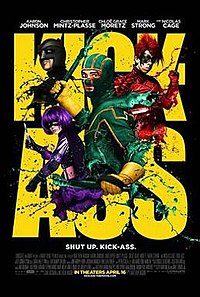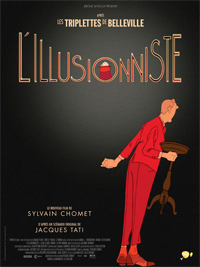Things I’ve watched recently on DVD or big screen, in order of release date:

Adventureland (USA, 2009)
Boy becomes man at theme park job. Another comedy-drama male POV film as exemplified by the Apatow stable. Slow, meandering, generous in every sense. Not well-crafted drama, which actually works in its favour, a lot of it feels like biography in how loosely it plays out. However, this sits uncomfortably against the heavy, contrived schtick of minor characters like the comedy managers and the villainous stepmother. Martin Starr (Bill from Freaks & Geeks) is the only one who successfully straddles the divide, delivering delicious broad comedy and solid, affecting dramatic work in a seamless whole. Kristen Stewart nervously adjusts her hair a lot but there’s some depth to her that won me over anyway – girl could go far if she escapes the Twilight eternity trap. Overall: ramshackle, fun, not worth swerving for but watch it if it comes on TV.

An Education (UK, 2009)
The delightful Carey Mulligan anchors this film, which is a little bit Lolita and a little bit… er… something else? Schoolgirl is wooed by older man, finds out older man is not actually perfect, cue tears and decisions and personal growth. A small story well-told, with an absolute commitment to its 1961 setting. Although the schoolgirl-older man relationship is central, the best energy in the film was between schoolgirl and teacher (Olivia Williams from Dollhouse, Whedon fans) and schoolgirl and headmistress (Emma Thompson, who is just great). It’s an odd script from Nick Hornby that mostly plays its beats gently, but can’t resist making The Dad a caricature. Crucially, though, the big turning point in the film didn’t play for me at all. When the girl finds out for the first time that the older man isn’t perfect and starts walking away, he chases after her and gives her a big speech and slowly she relents and goes back with him. This is probably the most important scene in the film, and it didn’t convince me. In fact it failed so spectacularly that it bumped me out of the film and I annoyed poor long-suffering Cal by ranting and raving about how unconvincing it was. It just wasn’t enough – there was nothing in the scene that made me believe in her turn, which was the one on which the entire drama of the film rested. Even more frustrating: in the very next scene, the girl gets a big speech in which she figures out the hypocrisy and pointlessness of the world and asserts her right to find her own path. THAT should have been the turn! That scene I believed absolutely – it got me back into the film and I shut up again, all the way to the ending (which inexplicably uses a “now I’m older and wiser” voiceover to daft effect, but never mind). Overall: engaging and heartfelt but wounded by odd scripting, probably worth it just for the period detail and the great performances. A worthy DVD rental.

Boy (NZ, 2010)
Kid has his life change when Dad comes home. Taika Waititi’s new film is side-splittingly hilarious for the first 15 minutes if you’re a Kiwi kid born in the mid-70s like me. And if you don’t fit that category then you’ll probably still laugh a hell of a lot because it’s funny as. The rest of the film is still really funny, but also quite sad. If you’re a New Zealander you will end up seeing this film. If you’re not from Aotearoa New Zealand, well it’s still not a bad night out I reckon. See it.

Kick-Ass (UK/USA, 2010)
Teenage nobody decides to be a superhero, fails his way into a mad adventure. Good lord, this film made me laugh and wince to almost painful degrees. Breathtakingly over-the-top violent like some of those crazy Asian films that used to play late slots at the Incredibly Strange Film Festival. Completely, unrelentingly loopy throughout. It almost never makes a conventional decision. Dogged in pursuit of its strange, wet-suited vision of movie bliss. You’ll be hearing a lot about the 13-year-old sweary assassin, and I almost cried with laughter telling Cal about the scene where the hero finally gets the girl, but the best thing about this movie is Nicolas Cage. NICOLAS CAGE. The guy is an enigma wrapped up in a hunk of wood wrapped up in a feverish hallucination. His performances left behind anything that might be called “real human behaviour” about a decade ago, and seriously, does anyone understand what he’s doing now when they point a camera at him and say ‘action’? I can’t see him receiving direction. “For this take, dial it up a couple of notches, okay Nicolas?” No. Not credible. They just must point the camera and pray. In this film he is AMAZING. I never wanted him to leave the screen, except that his exits are some of his best moments. MOAR NIC CAGE. Dude, do you remember when he was a huge action movie star? Doesn’t that seem more and more like it was a weird dream you once had, rather than something that actually happened? Overall: See. This. Movie. It earns its (NZ) 18 rating, so be prepared for a few moments of hands-over-face violence, but it will be like nothing else you see all year.
















